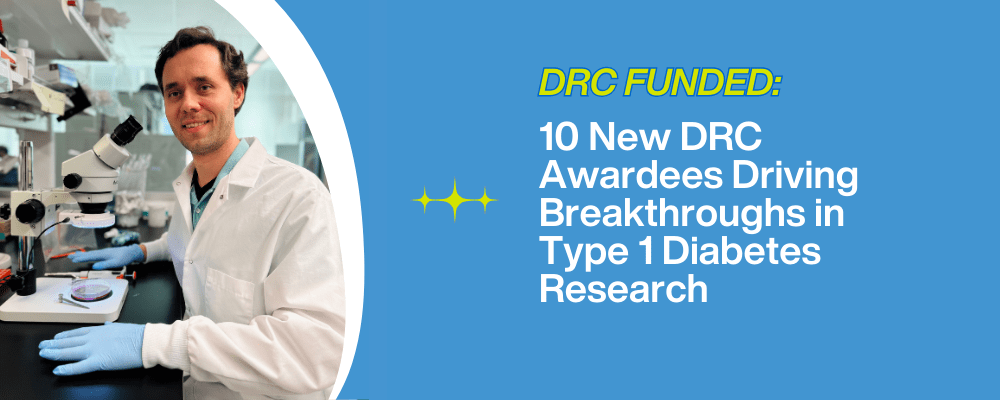When most people think about type 1 diabetes (T1D), they often focus on blood sugar control. But over time, T1D can cause complications that extend far beyond glucose levels—including serious damage to critical organs like the kidneys.
At Diabetes Research Connection (DRC), we support visionary early-career scientists tackling the complex link between type 1 diabetes and kidney disease. One such researcher is Dr. Carmen De Miguel from the University of Alabama at Birmingham, who is investigating a promising new pathway: inflammation’s role in diabetic kidney disease.
What Is Diabetic Kidney Disease?
Diabetic kidney disease (DKD), or diabetic nephropathy, occurs when high blood sugar levels gradually damage the small blood vessels in the kidneys. The last stages can eventually impair kidney function, potentially leading to the need for dialysis or transplant.
Your kidneys filter blood, remove waste, regulate fluid and electrolytes, and help control blood pressure. When their function declines, waste builds up, blood pressure can rise, anemia may develop, and the body’s overall metabolic balance is disrupted.
For individuals with T1D, changes can begin silently years before noticeable signs of diabetic kidney disease appear, making early detection and intervention critical.
A New Focus: GPER and Inflammation
Dr. De Miguel is exploring a lesser-known molecule called GPER (G-protein coupled estrogen receptor), which may play a key role in regulating inflammation in the kidneys.
Traditionally linked to hormone signaling, GPER is now being studied for its ability to influence how kidneys respond to chronic, low-grade inflammation—a hallmark of many diabetes-related complications.
Her research is focused on:
- Understanding how GPER functions in kidneys affected by T1D
- Determining if activating or blocking GPER reduces inflammation
- Exploring future treatment strategies that target GPER to prevent or slow kidney damage
Why This Research Matters
- It’s foundational. Early-stage research like this lays the groundwork for future breakthroughs.
- It’s preventative. Rather than waiting for diabetic chronic kidney disease to develop, Dr. De Miguel’s work explores ways to stop it before it starts.
- It has broader impact. A better understanding of inflammation in type 1 diabetes kidney disease could influence research on other complications.
This is exactly the kind of bold, early-phase science that DRC is committed to advancing.
How DRC Donors Make It Possible
Innovative projects like Dr. De Miguel’s often don’t receive traditional funding until much later. Yet it’s these early investigations that spark pathways for new treatments.
Thanks to donor support, DRC provides researchers with the essential funding to pursue these game-changing ideas from day one.
You can help:
- Donate to DRC to support this research and other high-potential projects
- Share this blog to raise awareness about T1D complications beyond blood sugar
- Subscribe to our newsletter for updates on this and other research breakthroughs
Together, we can support a future where people with type 1 diabetes live longer, healthier lives—free from the fear of devastating complications like kidney failure.



